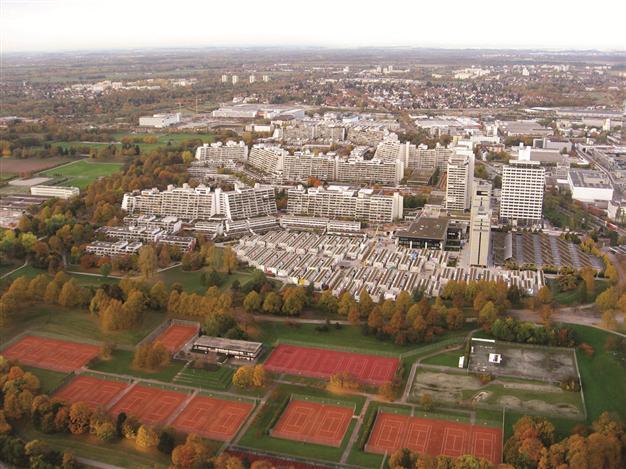From Sochi 2014 to Munich 2022
MUNICH - Hürriyet Daily News

The buildings that hosted Olympians in the 1972 Munich Olympics now serve as dormitories. Both sides of the referendum on a bid to host the 2022 Winter Olympics in Munich have sped up their campaigns ahead of a November vote.
The Olympic village that hosted world athletes in the summer of 1972 is now serving as a dormitory to students from all over the world. It was there that a group of eight Palestinians took 11 members of the Israeli Olympic team hostage in an episode that ultimately ended with the death of all except three Palestinians.
Probably none of the students made any connection between Sochi and Munich listening to the news last Monday when a female suicide bomber attacked a bus in southern Russia on Monday, killing at least six people in the deadliest such blast outside the volatile North Caucasus region in nearly three years. The bombing in Volgograd raised fears of further attacks by Islamist militants as Russia prepares to host the 2014 Winter Olympics in February in the Black Sea resort city of Sochi, not far from the mainly Muslim North Caucasus.
According to Mithat Çelikpala, from Istanbul’s Kadir Has University, the decision to choose Sochi, which actually has a subtropical climate, also has a political dimension. The Russians wanted to show that the region is under the total control of the central government.
“This is the manifestation of the new, resurrected Russia,” said Professor Dr. Ernst Steinicke, from the University of Innsbruck, talking to a group of academics and journalists from the Black Sea region.
With its subtropical climate, Sochi was previously known as the Red Riviera on the Black Sea, as it served as a summer sea resort with hotels and rude, Soviet-style service catering to undemanding tourists from provincial Russia. The nearby mountains are covered with snow when the temperatures go down. But even in the event of mild temperatures, there will be no problem, said Steinicke: “The Russians will provide the snow.”
Reports from last summer indicate that Sochi organizers had already stockpiled snow, half of which is expected to survive until next February.
The Games will be used also for their nation-unifying effect, according to Steinicke, who said the Olympic torch would travel as far as Magadan on Russia’s Pacific coast. Steinicke recalled that 2014 would mark the 150th anniversary of the Circassians being forced to leave their native lands after losing a century-long battle against Russian expansion.
Chechen rebels, meanwhile, have been calling for attacks on the Sochi Games.
Stepping up security measuresDetermined for the Sochi Games to be a success, Russia is expected to step up security measures. Yet the games could have been used as an opportunity for reconciliation, according to Çelikpala, who said Russians could have been inspired by the Canadians during the 2010 Vancouver Games, during which Aboriginal people across Canada played an important role in the opening ceremony.
“The Olympics are also about solidarity, friendship, brotherhood. Locals in these regions are unhappy and have a problem with the central government. Moscow could have used this opportunity to reach out to them,” he said.
The Olympics have also been a source of criticism in Russia as well. The overall bill for the games stands at $51 billion, making them by far the most expensive Olympics in history, although there will be the ostensible legacy of facilities for the city after the Games.
Although it might attract some skiers from Moscow and Saint Petersburg, Russians are known to opt for Italian, German or Austrian slopes since they actually cost much cheaper.
There are also doubts as to what degree the facilities will be of use for locals. A survey conducted by Steinicke showed that very few Sochi locals know how to ice-skate, a point made two years ago by opposition leader Boris Nemtsov.
“There is no tradition of skating or hockey there. In Sochi, we prefer football, volleyball and swimming. Other parts of Russia need ice palaces — we don’t,” he had said in an interview.
Neither Sochi locals nor other Russians were asked about the Olympic Games, an issue that will put Munich in stark contrast with the Russian case. The city is set for a Nov. 10 referendum on holding the Olympic Winter Games in 2022. You can already see banners in the city for the “yes” and “no” campaigns.
Munich is actually one of the rare cities whose Olympic legacy in terms of facilities has been successful. The Olympic Park continues to serve as a venue for cultural, social and religious events and also is a destination for both domestic and foreign tourists.
